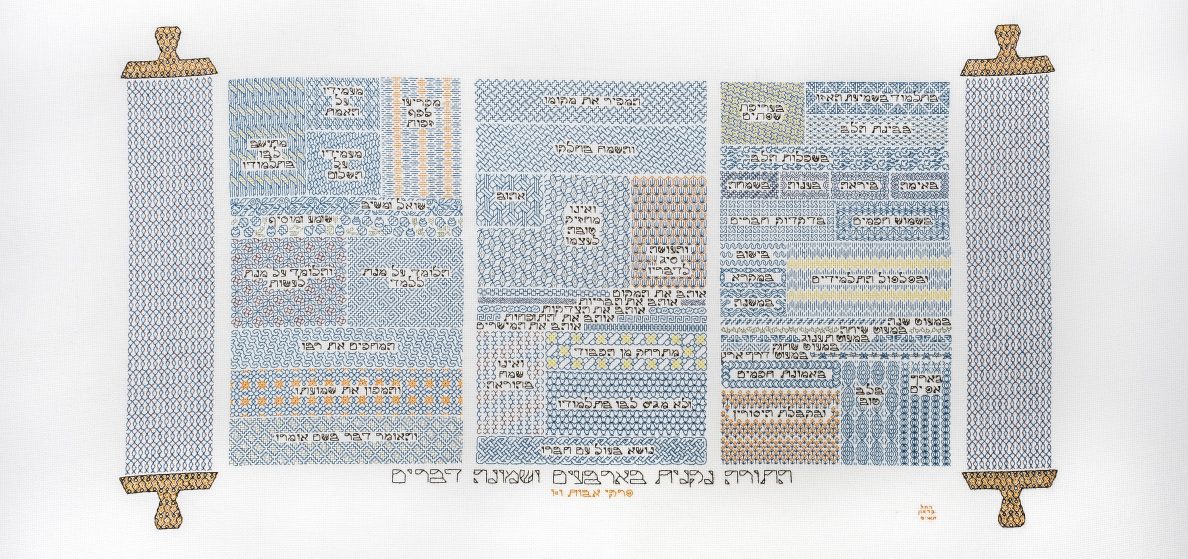The piyyut Unetana Tokef is a tough sell. Few of us accept its theology, the image of a note-taking God who assigns us to either the Book of Life or the Book of Death. Then again, even the Talmud does not entirely embrace this image. In Tractate Rosh Hashana 16b – 17a, there is an extended discussion of how God metes out justice, in not quite so deadly a fashion as we read in unetanah tokef. Why does the payyetan write it out so starkly? The complexity of the text, the Biblical allusions, and the literary style point to a talented but selectively draconian writer.
So basically, as in much of the High Holiday liturgy, we have an unrestrained, wildly imaginative, and free-wheeling poet pouring out his heart, centuries and centuries ago, and we still have the privilege of his poem to read. Alav hashalom – may he rest in peace – I for one don’t care for his theology and I also not offended that I have to read it. In fact, it’s hard to imagine any writing this season where we’re all on board with all the theology. I’ve read that the only theology Jews can agree on is that the quantity of Gods in our belief system is a number less than or equal to one.
Sometimes I see the text as simply entertaining. My usual metaphor for Unetanah Tokef is that it’s like a horror movie, allowing a person, deeply but still at a distance, to play out worst fears. Recently, I heard a bit of a Monty Python song in my subconscious – “bravely rode Fabrangen, off to High Holiday services…They were not afraid to die, oh brave Fabrangen. They were not at all afraid to be killed in nasty ways, brave, brave, brave, brave Fabrangen…Who by fire and who by water, who by earthquake and who by beast….”
(It really works. Try it in the melody.)
But this year, I’m thinking more about agony. I read an essay by Chancellor Shuly Rubin Schwartz of JTS, who decades ago lost her adult son in a bicycle accident and then her husband a few months later. She pointed out that a lot of our High Holiday readings concern agony and loss. Indeed, the list is long. Sarah is concerned about her bullied son. Hagar weeps over her parched son. Isaac is carted up the mountain. Hannah yearns for a son. The rabbis could have chosen some uplifting Torah text for the yamim nora’im – Ten Commandments or the Holiness Code – but instead, it’s all agony.
So for me, listening to and singing Unetana Tokef is another deliberate High Holiday choice to expose oneself to a narrative of agony. The agony might be physical – death by fire, water, sword, beast, hunger, thirst, earthquake, plague. It might be spiritual – who shall be calm? distraught? serene? tormented? Actually, it sounds a lot like reading the newspaper. Fire? earthquake? floods? That’s just the last month. Are we as provoked by those descriptions when we see them, essentially weekly, in the newspaper? Probably not – we’re reading the paper over a good cup of coffee, watching all this happened to folks far far away. For some of those disasters, there is indeed a Knowing, All Powerful, Extra-Governmental, Prosecuting Decisor who has determined who shall live and who shall die. It’s not God. It’s probably Big Oil and its lobbyists. I can rage against Big Oil, but I prefer not to rage against God. And unlike the God of Unetana Tokef, those guys at Big Oil don’t bother keeping track of us individually, recording our every deed and moment, before condemning us to the Book of Death. I think on balance, I prefer Hashem, God.
For me, reading Unetanah Tokef makes me a better person. I force myself to stay in touch with agony. It’s in my face, in all these texts, that I might die this year, that someone I love might die this year, that I could do something so manifestly stupid that I could harm my loved ones, that I might live with my yearnings unrequited, that, like real actual people in Hawaii or Libya, I might die by fire or by water. And that makes me want to enjoy each day – ok, maybe not THIS particular day – a little bit more, and use each day a little bit better.




